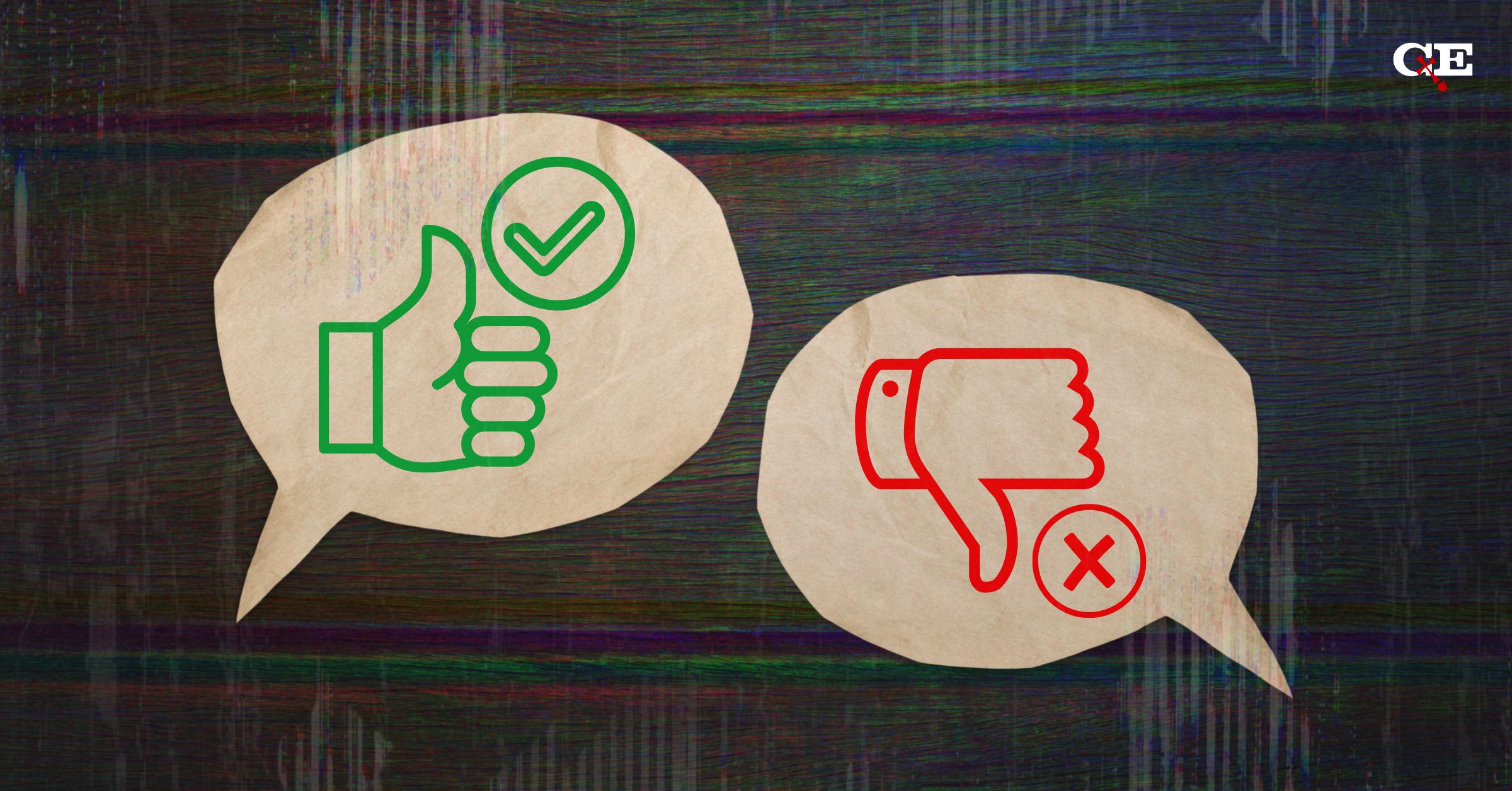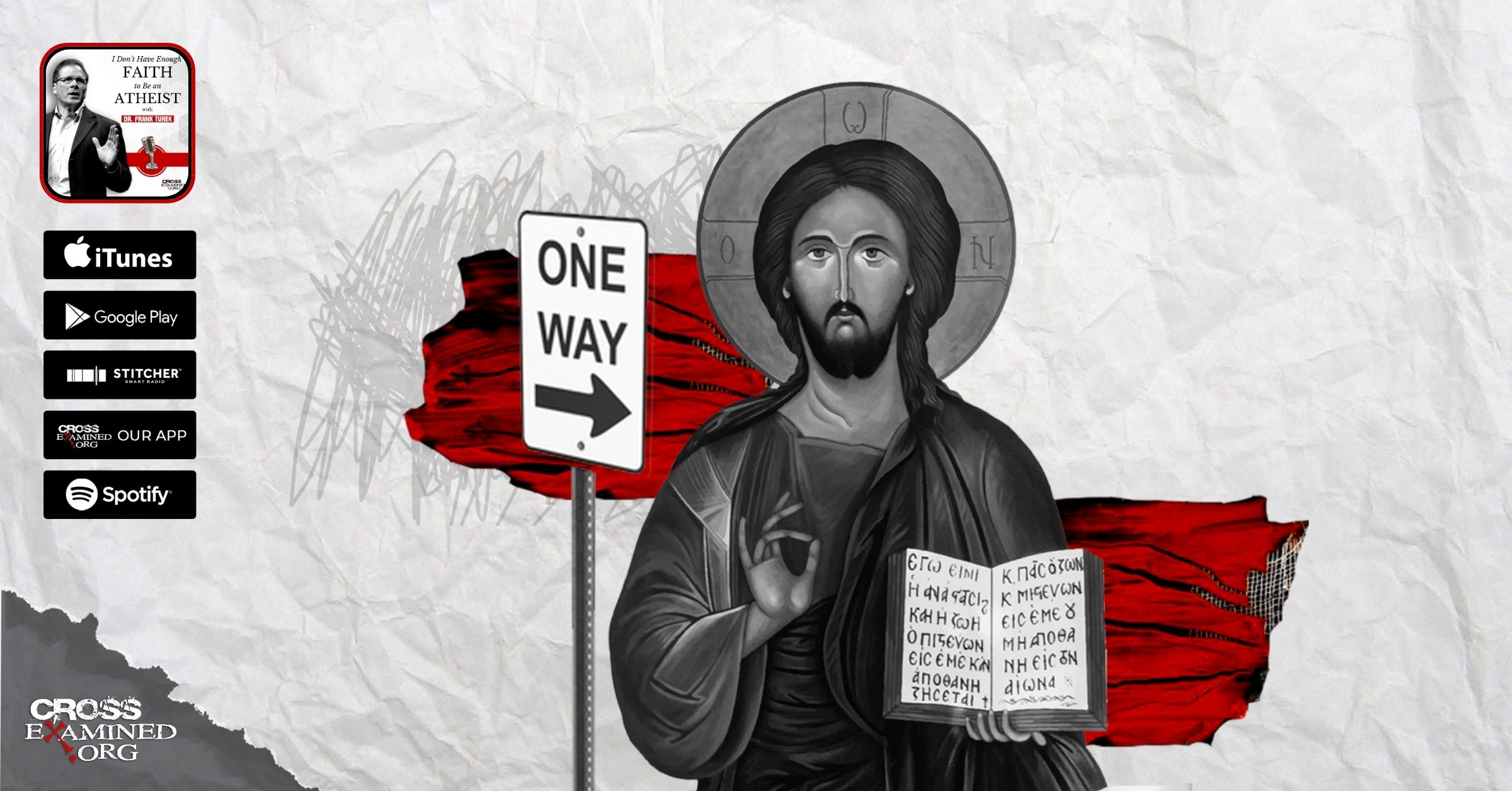Christians Must Care Less about Our Cultural Reputation
Never have I written an article title that sounds less intuitive. Don’t we need to be concerned about our witness to the world? Isn’t that implied in the Great Commission? Shouldn’t people see us and want to follow Jesus because of our reputation?
Stick with me here, because this requires some nuance and it’s really important.
The idea that Christians need to fix a growing reputation problem in our society is becoming increasingly common in conversations on social media and even in articles by well-known Christian leaders. Comments like “The world is watching…” or “We’re damaging our witness by…” often warn believers to modify what we say or do so culture will think differently about us. The assumption is that we’ve collectively gone wrong in recent months (or years), and now we’ve got to quickly do something about it…before the world thinks even worse of us.
I would agree that Christians (and Christianity in general) are increasingly being seen in a negative light by nonbelievers. But I think we need to be extremely careful in how we assess and respond to that fact.
Our cultural reputation is not necessarily a measure of how faithfully we’re living out our calling as Christians.
If we treat it as such, we’re going to end up fixing the wrong problems.
What Makes a Reputation?
By definition, a reputation is “the beliefs or opinions that are generally held about someone or something.” This implies that a reputation involves the words and actions of two parties:
- What party one says or does
- What party two thinks party one says or does, and how they evaluate that
This is where things get tricky. If your reputation is negative in some way with another party, it could:
- be deserved (based on what you’ve said or done);
- be a mistranslation between what you’ve said or done and what the other party thinks you’ve said or done; or
- be a negative evaluation of what you’ve said or done, even when accurately understood.
When we consider the layers involved here, we can better understand why our reputation—what people think of us—is less important than we might assume.
When a Negative Reputation is Deserved
I follow a number of atheist authors and organizations on Facebook to see what’s important to them and how they talk about various issues. One thing I’ve noticed over years of doing this is that they focus more on highlighting the worst examples of Christianity than on anything else. One example that quickly comes to mind is Westboro Baptist Church, known for protests featuring signs proclaiming that “God hates fags.”
This is horrendous.
God loves everyone, even if he hates sin. And to use such derogatory language reveals a misplaced motivation for why they do what they do. Such tactics are rooted in contempt, not in love for bringing people into a saving relationship with Jesus.
If someone pointed out this example as something that gives Christians a bad reputation, I would say, “Yes, it absolutely does.” This isn’t consistent with the Bible at all. It would be extremely unfortunate for anyone to judge the truth and/or goodness of Christianity as a whole based on individual examples like this, but the reality is that they do. While we may think this kind of extrapolation is unfair (“Westboro doesn’t represent Christianity!”), we have to recognize that our culture has a very poor understanding of biblical Christianity and will come to faulty conclusions because of it.
It’s not just extreme examples like Westboro that give Christians a bad reputation, of course. There are plenty of Christians engaging in conversations that could hardly be described as bringing glory to God. The tone we use, the approach we take, and the words we share can do even more damage to the Christian “reputation” than the Westboros of the world because firsthand interactions often leave a more lasting impact.
This aspect of reputation is what we should care deeply about because it’s what we have control over—the integrity of our witness. As Paul says in Philippians 1:27, “Whatever happens, conduct yourselves in a manner worthy of the gospel of Christ.”
In all we do, we should stay obsessively focused on that question: Is my conduct worthy of the name of the Lord?
When There’s a Mistranslation
In a lengthy Instagram post this week, singer Demi Lovato detailed why gender reveal parties are “transphobic.” Lovato says:
“It’s both insincere and incorrect to pretend that gender reveal parties are not transphobic… Transphobia is not just about prejudice against individual trans people, it’s also a way of thinking that understands non-trans people as more natural/organic and erases everyone else.”
Yes, having a party to announce your baby’s gender now means you’re afraid of people who struggle with gender dysphoria and want to “erase” them.
For Christians, it’s nothing new to be called homophobic or transphobic because of a belief that biblical marriage is between a man and woman or that God created two genders. But to characterize these beliefs as “phobic” (a fear) is a mistranslation; saying that God has a sexual and marital design for humans isn’t to be afraid of anything. It’s to believe that God has revealed his will and purposes for humanity in the Bible and that popular moral consensus on these issues conflicts with that revelation. It simply doesn’t follow that these beliefs imply hatred or fear, yet society continually labels them as such. The result? Christians often have a reputation for being homophobic or transphobic.
No one wants to be known as hateful or fearful, so what do we do with that?
Here’s where the problematic responses come into the picture.
Christians are increasingly on a crusade to save us from this reputation—not by working to correct the misunderstanding that moral disagreement equals hate, but by refusing to speak up or by changing their view to match that of society. I experience this all the time when I post articles about hot cultural topics on my Facebook author page. There are always Christians who comment that it gives others a negative impression of us when we speak out on certain subjects (even when we do so graciously), or who comment that the traditional view is wrong in the first place.
Silence or agreement may improve our cultural reputation with non-believers, but it’s fixing the wrong problem.
In our silence, we fail to be the salt and light we’re called to be.
In our agreement, we fail to be faithful to God’s Word.
In fixing our “reputation,” we break our integrity.
When There’s Accurate Understanding with Negative Evaluation
Russell Moore, President of the Ethics & Religious Liberty Commission of the Southern Baptist Convention, has written often in recent months about his concern for the church’s witness, particularly in the area of politics.
In his widely shared article, “The Gospel in a Democracy Under Assault,” Moore wrote that Christians need to be “people of truth.” What does that entail? He explains:
“It will take decades to rebuild from the wreckage in this country. But, as Christians, we can start now—just by not being afraid to say what is objectively the truth. Joe Biden has been elected president. Millions of babies are being aborted. The pandemic is real. So is racial injustice—both personal and systemic. So is the sexual abuse of women and children. If Christians are people of truth, we ought to be the first to acknowledge reality.”
In a backhanded way, Moore is suggesting that Christians are guilty of damaging our witness because we’ve collectively been denying the “realities” on his truth list. The implication is that we need to be known for agreeing with these statements if we have any hope of salvaging our credibility.
But some of these so-called truths we’re all supposed to acknowledge are grossly oversimplified.
For example, I’ve never seen a single person suggest that the pandemic doesn’t exist. Everyone knows it’s real, but Christians have varied views on its relative risk, issues surrounding freedom to worship, and the tradeoff between health risk and economics. If culture accurately understands that many Christians are concerned about the freedom to worship even in a pandemic but evaluates that negatively (an example of the third type of reputation issue), that’s not necessarily something we can or should fix. The world doesn’t like it, but sometimes we have to be just fine with that.
Similarly, Moore says that we all must acknowledge the reality of systemic racism. But systemic racism is a loaded term that has a very specific meaning today—it’s the idea that racism is baked into the very structure of our society, and any disparity in outcomes between people is due to oppressive social structures. There are many Christians who would not agree with Moore that this is a “truth” we should be lining up behind in order to salvage our cultural credibility. Again, if culture evaluates Christians negatively for not buying into the idea that disparate outcomes are necessarily the product of racist social structures, we can’t necessarily fix that reputation “problem.” The world will simply not always think well of us for what we believe or what we don’t.
Ironically, Moore himself is adding to the very reputation issue he is concerned about by suggesting to the watching world that Christians have thought or done wrong to get the reputation we have. Yet at least a couple of those things have more to do with the negative evaluation people have of legitimate Christian concerns than about actual failure to live faithfully.
It is right to be concerned with our witness to the world. We do want people to be attracted to Jesus through us. But that doesn’t mean we should try to manage our reputation, because there’s much involved we can’t control. Remember, Jesus said the world will hate us (John 15:18). We just want to be sure we’re disliked for the right reasons. If the world hates us because of the truth we share, that’s to be expected. If the world hates us because we’re acting like a bunch of ungodly jerks, may we feel the deepest conviction to repent of the ugliness we’ve brought to the name of the Lord.
Recommended resources related to the topic:
Jesus, You and the Essentials of Christianity – Episode 14 Video DOWNLOAD by Frank Turek (DVD)
So the Next Generation will Know by J. Warner Wallace (Book and Participant’s Guide)
Counter Culture Christian: Is There Truth in Religion? (DVD) by Frank Turek: http://bit.ly/2zm2VLF
__________________________________________________________________________________________________________________________________________________
Natasha Crain is a blogger, author, and national speaker who is passionate about equipping Christian parents to raise their kids with an understanding of how to make a case for and defend their faith in an increasingly secular world. She is the author of two apologetics books for parents: Talking with Your Kids about God (2017) and Keeping Your Kids on God’s Side (2016). Natasha has an MBA in marketing and statistics from UCLA and a certificate in Christian apologetics from Biola University. A former marketing executive and adjunct professor, she lives in Southern California with her husband and three children.
Original Blog Source: https://cutt.ly/DcHKhj7











